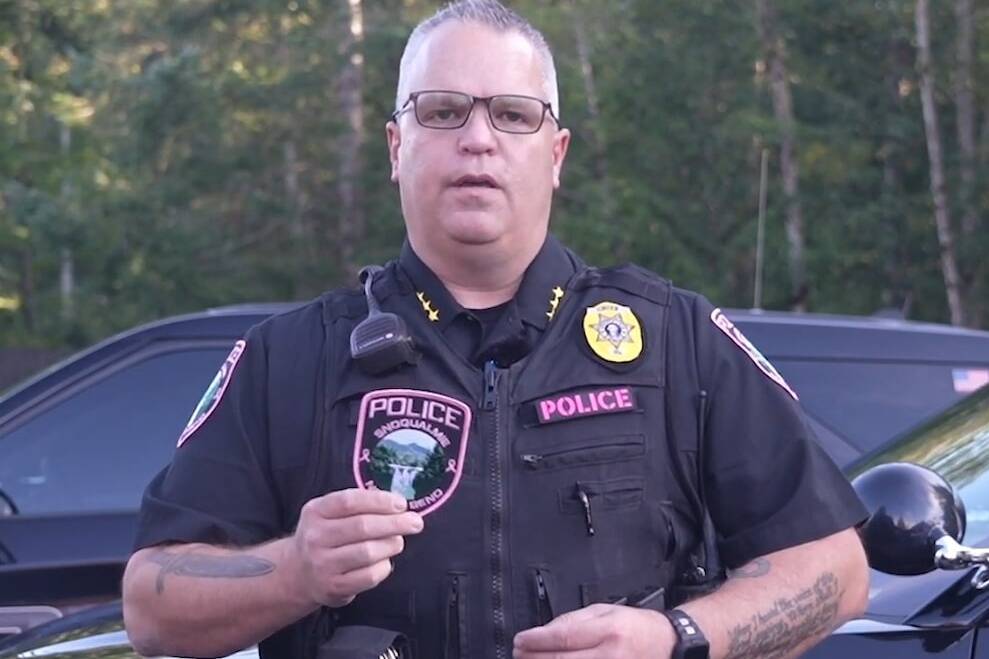Snoqualmie Police Department employees can be seen wearing breast cancer awareness patches on their uniforms this month in an effort led by Chief Brian Lynch.
This is the first year the department has worn the patches. The purpose is to strike up conversations about the disease and remind people to get regular checkups. Lynch implemented the campaign after a series of breast cancer diagnoses affected him and others at SPD.
This past summer, evidence technician L.T. Liebetrau was at work when he got a call from his sister informing him she was diagnosed with breast cancer. She opted for a double mastectomy, underwent radiation and will now have two years of oral chemotherapy.
“It was just a devastating conversation to have in the office,” Liebetrau said. “I distinctly remember that she had to console me. It was really odd.”
Lynch put together the idea for the patches to surprise Liebetrau. Not long after, two women in Lynch’s personal life were also diagnosed with breast cancer.
“We had already started the process of making these patches, and with each diagnosis, it became more personal,” he said.
The department has seen a positive community response to the patches. In the first week of wearing them, Lynch said he was stopped at least five times by people who had been touched by breast cancer in some way.
“You’re hard pressed to find anyone that has not been touched by some sort of cancer,” he said. “The numbers are astounding on how many people per year are going to get this, men included.”
The officers were given the patches to wear on a voluntary basis, and Lynch hopes more people join in each year. It’s a way for the community to connect with the department, which he said tends to “communicate overly” in hopes that people will know the officers and trust them.
“We want people to know that we’re not machines, that we’re human beings, that we have the same things going on in our life that they have going on in their life,” he said. “And if it helps to break down a barrier to somebody, then why wouldn’t we want to do that?”


